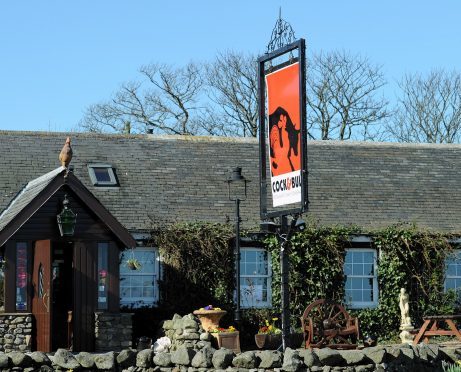Licensed premises in remote parts of Scotland are in the grip of a slump made worse by new government legislation, a new survey shows.
But there are signs that hospitality retailers are starting to adapt to consumer trends and new rules.
More than two-fifths of pubs and bars, late opening premises and hotels in rural locations suffered a decline in revenues over Christmas and New Year, according to a poll by the Scottish Licensed Trade Association (SLTA).
By contrast, 65% of the entire sector’s businesses – including outlets in cities – reported growth or stability during the festive period.
About 600 Scottish on-trade retailers in rural and urban areas, which accounts for 11% of the sector, took part in the online survey in December and January.
SLTA chief executive Paul Waterson said the trend for decline among rural pubs and bars was a concern, with only 16% expecting growth in 2016. This was compared with 34% for all licensees.
More than two-thirds of outlets said the biggest issue facing them was legislation, including the lowering of the drink-drive limit in Scotland and planned living wage increases.
Mr Waterson said the tough trading conditions would lead to further closures in rural areas, but there were still plenty of growth opportunities for businesses with a blend of services and products.
Some 77% of outlets with accommodation either grew their room occupancy or remained stable over Christmas, while those serving food also performed better.
Premises selling a wider range of soft drinks and alcohol-free cocktails have also fared better as people look for an alternative to the after-work pint. Those who have latched onto the craft beer boom have also prospered.
Mandy Davidson, restaurant director at the Cock and Bull near Balmedie, Aberdeenshire, said: “As we are a food-led pub, with only 30% of our turnover on wet sales, we have fared better than most rural pubs with the new drink driving legislation.
“We have seen a drop in alcoholic sales since the new legislation but have countered with a better choice of soft drinks and non-alcoholic cocktails.”
Elizabeth Ferguson, who manages the Lock Inn at Fort Augustus, said the pub started buying craft beer in October and had widened its range of soft drinks and alcohol-free beer. Sales of these products were encouraging, she added.
Ms Davidson and Ms Ferguson both said their businesses had suffered a slight dip in custom at Christmas and were concerned by living wage rules which come into effect in April.
Ms Davidson said: “The introduction of the living wage will have an impact on the hospitality industry and may well lead to job losses and an increase in cost for the customer.
“While many employers will be able to afford this increase to their wage bill, the hospitality industry which employs a large number of lower paid workers will be hardest hit.”
Ms Ferguson, who was crowned Licensee of the Year at the SLTA awards in November, vowed to keep plugging away. “I always hope for growth and I think it’s achievable,” she said, adding: “If you didn’t think that, you’d throw in the towel.”
